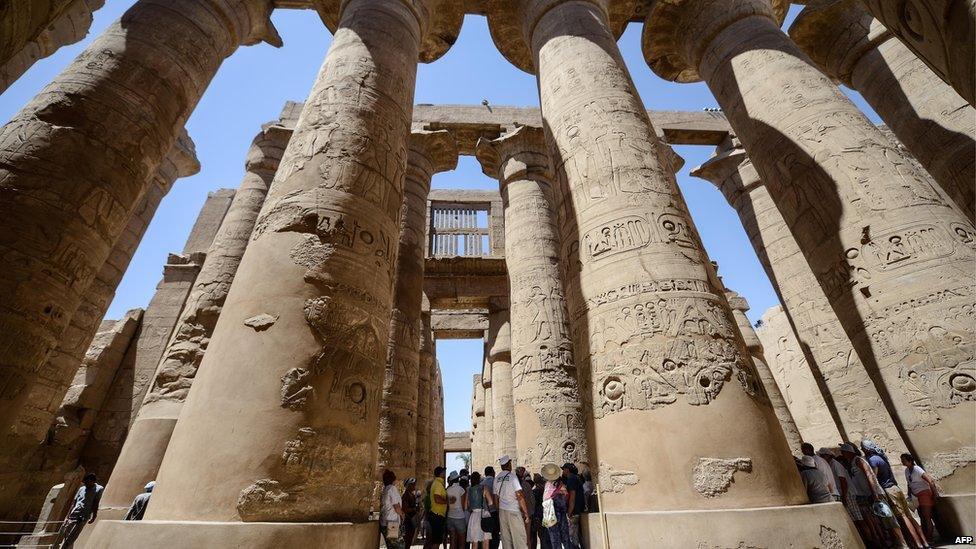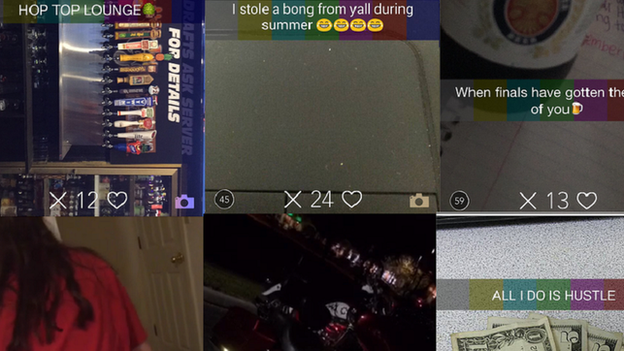Facebook group seeks justice for a man tortured to death by police
- Published

Talaat Shabib died in police custody, and his case has inspired an online campaign
In Luxor - the ancient Egyptian city that draws thousands of tourists each year - a Facebook campaign has prompted the arrest of nine police officers accused of torturing a man to death.
Talaat Shabib used to work in a bazaar for tourists. The Egyptian man in his 40s was sitting in a coffee shop when the police arrested him in late November for possession of Tramadol, a drug commonly used for recreational purposes in Egypt.
The events that took place after he was taken into custody are unclear, but soon a video surfaced showing his body covered in bruises. The video is disturbing (and thus we aren't linking to it). And it contradicted earlier police claims that he fell ill and died in a hospital.
The video was watched over 100,000 times on Facebook, and triggered an online campaign calling for justice. The Facebook page "We are all Talaat Shabib" was created by two men who knew him. "He was a decent person who worked in tourism," Mohamed Rabea, who is running for local office as an independent candidate, told BBC Trending. "We created the page because I wanted to fight corruption."
The page got more than 15,000 likes including many from the local community. After the pressure mounted on the police, a forensic autopsy was carried out - which found that Shabib was indeed tortured to death. Now, nine police officers have been arrested in connection with the case and are awaiting a court date.
It seems like a tale of people power spreading awareness about police brutality. But that's not the end of the story. The Facebook page has since been taken down. Rabea says he became worried when he saw political groups associated with Egypt's recent revolutionary politics trying to politicise the case. "Political groups, like the Muslim Brotherhood and 6th of April movement started to latch on to the campaign and politicise it, claiming that the entire police force in Egypt is corrupt," he said. "That's not what I created the page for."

Karnak temple in Luxor, one of Egypt's most popular tourist sites.
Rabea insists that Shabib's case is an isolated one and that such cases are not common in Luxor. "We have a culture in our area that is distinct from the rest of Egypt. In Luxor we don't tolerate being humiliated by anyone and it's a tight community so we stand together," he says.
Across the country though, there are many cases of police brutality, according to human rights groups. A report from Amnesty International, external last year says arbitrary arrests, detentions and torture have become a worrying trend in the country. In particular, activists say there has been an increase in these cases after recent laws gave the Ministry of Interior more authority to arrest people.
"There are hundreds of people who have nothing to do with cases who just happened to be in the wrong place at the wrong time and they get picked up by the police," says Mohamed Abdel Aziz, an Egyptian human rights lawyer. He says that the authorities' relatively rapid response to Shabib's death is not typical. "This usually happens when there is pressure by the community, but you don't find that happening in other places where there's no support from the community especially if the person in question has a criminal record," he says.
Some of those commenting on the case online are drawing parallels with the story of Khaled Saeed, a young man who was also tortured to death by the police in Alexandria in 2010. Saeed's death was one of the factors that sparked the 2011 uprising. One thread of the online chatter is speculation that people might return to Tahrir Square - ground zero of the Egyptian revolution - because of these incidents.
But Mohamed Rabea, who set up the Facebook group, says that in Luxor at least, official actions have defused some of the anger. "We are already seeing a change in how the police are responding to this incident," he says. "So we will see what happens next."
Next story: Rape allegation puts spotlight on anonymous campus app Yeti

The murky case of an alleged rape has put an anonymous video messaging app popular on university campuses in the spotlight.READ MORE
You can follow BBC Trending on Twitter @BBCtrending, external, and find us on Facebook, external. All our stories are at bbc.com/trending.